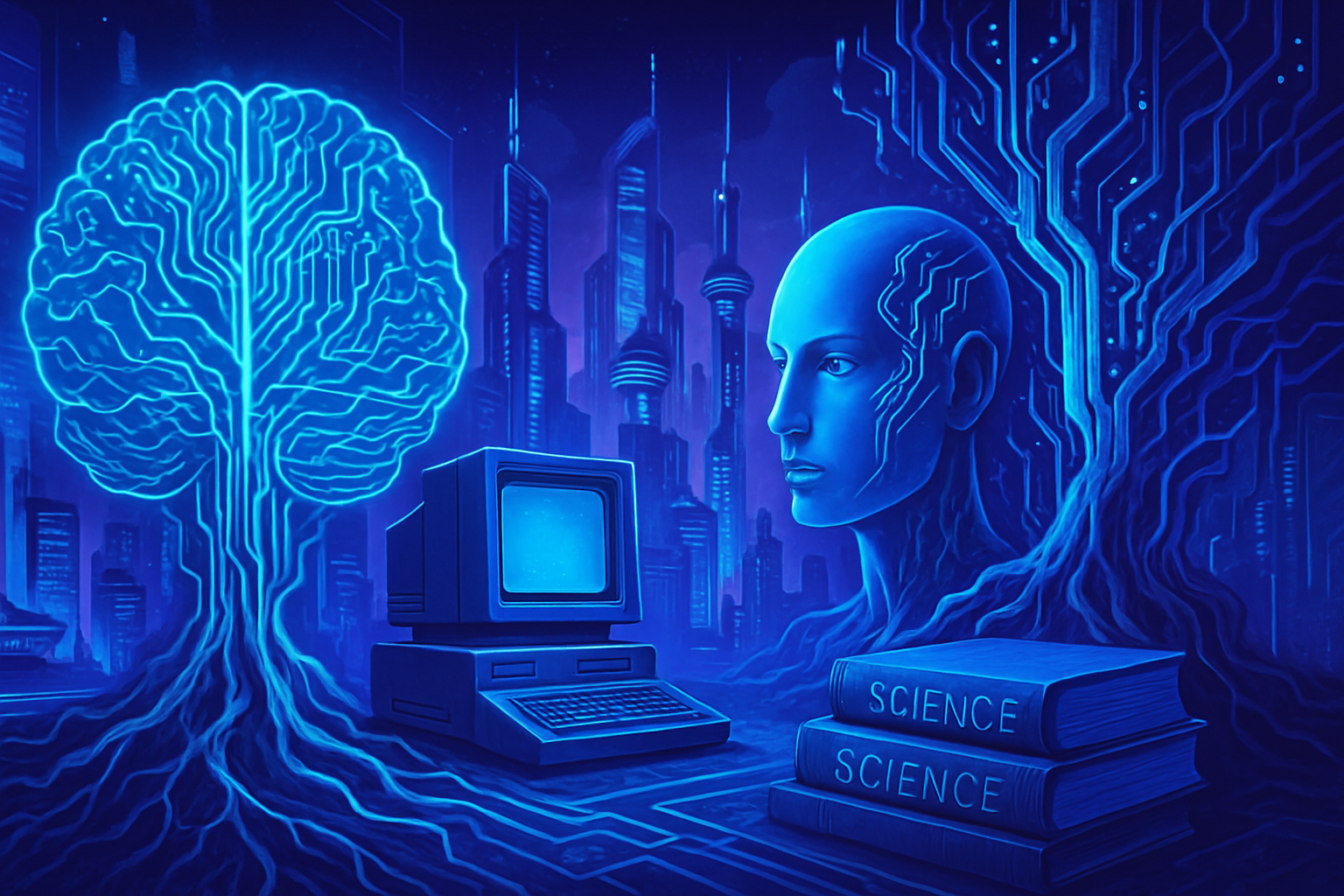Artificial intelligence (AI) presents itself as a fascinating evolution, but its roots run deep in the history of human thought. Contemporary advancements are not revolutions, but a continuation of dreams of automation and rationalization. The foundations of AI date back several decades, redefining our relationship with technology and the sciences. Many researchers have long anticipated autonomous capabilities, shaping our perception of this discipline. Far from being a striking novelty of the 21st century, AI challenges our ability to integrate these upheavals into an already complex technological landscape.
An Evolution, Not a Awakening
Artificial intelligence (AI) is not a sudden revelation of the 21st century. It is rather a gradual evolution of several decades of scientific research and technological innovation. The roots of AI trace back to the 1950s, when a set of innovative ideas enabled the creation of rudimentary computing models, thus outlining the potential of machines capable of reasoning.
The Beginnings of Artificial Intelligence
The work of pioneers like Alan Turing and John McCarthy established the foundations upon which modern AI has been built. Turing, for example, proposed the famous test that evaluates a machine’s ability to emulate human intelligence. McCarthy, for his part, lent his name to the Dartmouth conference in 1956, often regarded as the official starting point of the field.
An Ongoing Competition
Currently, the landscape of AI is marked by intense competition among tech giants. Microsoft and OpenAI are engaged in a fierce battle, each seeking to dominate the realm of artificial intelligence solutions. This struggle for innovation drives unprecedented technological advancements, changing industry paradigms. For more information about this competition, see this analysis.
The Implications of AI
The implications of artificial intelligence affect many fields, whether in health, education, or entertainment. A program recently introduced combines AI-generated notes with human contributions on platform X, illustrating a potential collaboration between humans and machines. The effects of such innovations raise important ethical and practical questions that warrant examination. More details can be found in this article: read here.
The Current and Future Challenges
The field of artificial intelligence faces significant challenges. The demand for a redesign of the British AI institute, in response to governance and ethical concerns, highlights these issues. Regulations must keep pace with technological advancements. A thorough examination of this situation is available in the following article here.
Continuous Innovation
Companies continue to compete for the best AI talent. Meta is recruiting the bright minds from OpenAI, increasing the tension in this competitive field. This dynamic shows that innovation is just beginning, paving the way for endless possibilities. To learn more about this news, see this article.
Performance to Surpass
Current analyses suggest that artificial intelligence will surpass reputable consulting agencies like McKinsey, but this will not happen immediately. This observation tests the speed of technological developments in the sector, sparking a debate about the future of traditional businesses. To delve into this topic, see this article here.
Frequently Asked Questions About Artificial Intelligence
Is artificial intelligence a recent invention?
No, although technological advancements have accelerated its development, the concepts of artificial intelligence date back to the 1950s, with pioneering work done by researchers like Alan Turing.
Is it just a passing trend in the technological field?
No, artificial intelligence is the result of decades of research and development, and it continues to evolve and integrate into various sectors, ranging from health to finance.
What are the major milestones in the history of artificial intelligence?
Major milestones include the early machine learning algorithms in the 1950s, the development of neural networks in the 1980s, and the recent successes of deep learning systems in the 21st century.
What are the practical applications of artificial intelligence today?
Artificial intelligence is used in various fields such as voice recognition, computer vision, recommendation systems, and industrial process automation.
Can artificial intelligence really learn from experience like humans?
Yes, machine learning algorithms allow machines to improve based on data and experience, although their way of learning differs from that of humans.
Are the fears surrounding artificial intelligence justified?
Concerns about the ethical social impact of AI are legitimate, particularly regarding privacy, security, and job automation, necessitating appropriate regulation.
Can artificial intelligence be considered a form of human intelligence?
No, artificial intelligence simulates certain aspects of human cognition, but it lacks consciousness, emotions, or understanding at the same level as a human being.
What are the limitations of current artificial intelligence?
Current AI suffers from limitations, such as reliance on data, inability to generalize correctly beyond its training data, and biases that may exist in algorithms.
How is artificial intelligence evolving over time?
It evolves through advancements in algorithms, increased computing power, and access to vast datasets, which improve its performance and applications.
What role does research play in the development of artificial intelligence?
Research is essential to explore new techniques, understand ethical implications, and improve the performance of AI systems, while ensuring their safety and effectiveness.






